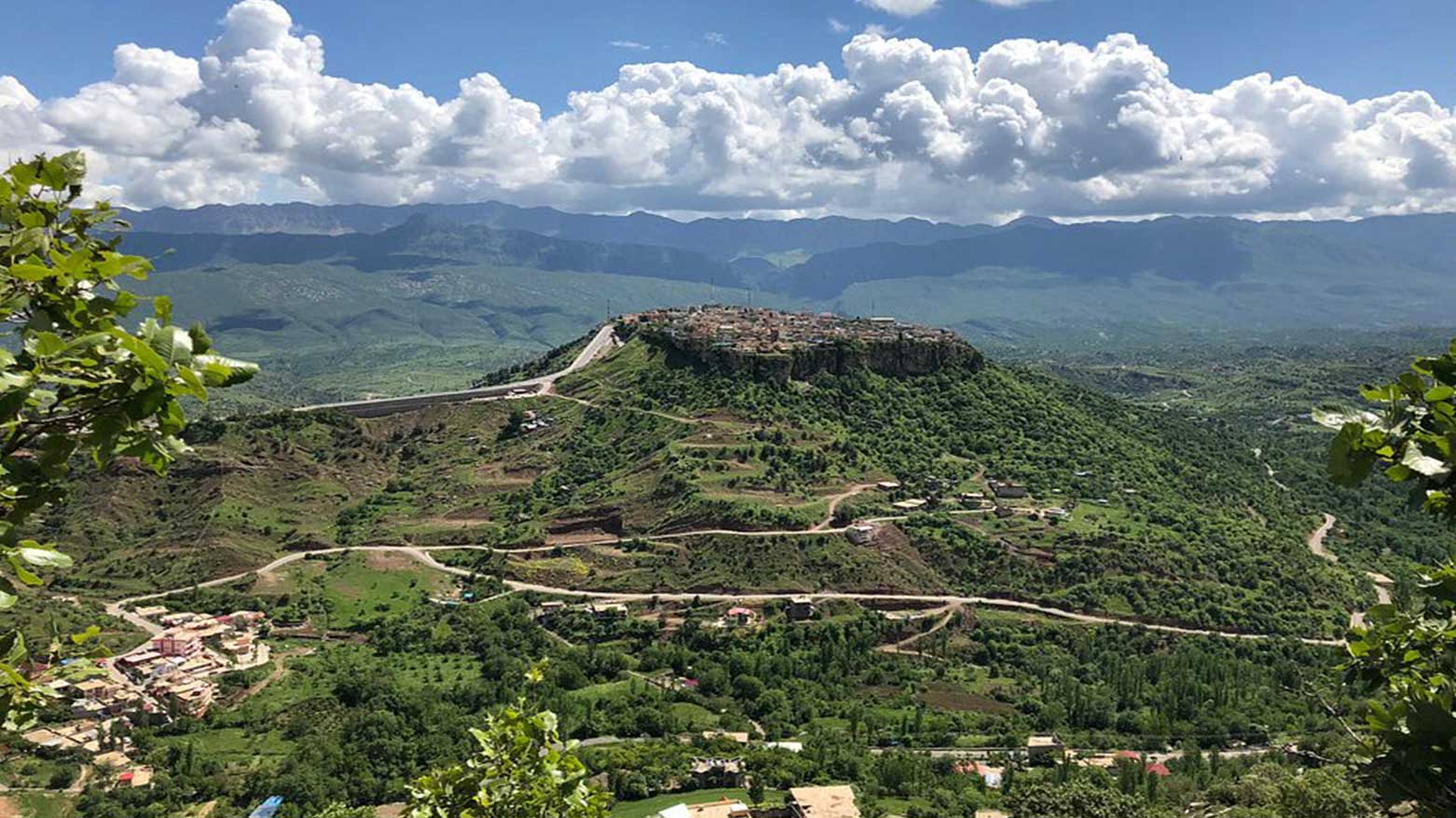Farmers Return to Their Fields in Gara Mountain Villages as PKK-Turkish Clashes Pause
After Years of Conflict, Kurdish Farmers Eye a Return to Normalcy as Security and Agricultural Livelihoods Hang in the Balance

ERBIL (Kurdistan24) — Residents of 15 villages near Gara Mountain along the Amedi district border have cautiously returned to their homes and farmland following a temporary halt in clashes between the Kurdistan Workers’ Party (PKK) and Turkish forces, local sources told Kurdistan24.
In previous years, farmers were often restricted from accessing their orchards and fields for several hours or even days due to ongoing military operations. This prevented them from tending crops or bringing their harvests to local markets. This year, the ceasefire has allowed villagers to resume agricultural work, improving both their security and livelihood.
Over the past week, a significant number of villagers have returned to their homes and farmland. According to the Duhok Agriculture Directorate, the region’s production of sumac—a primary crop in these villages—generates roughly 500 million dinars in income.
However, villagers reported continued damage in some areas from past Turkish shelling and airstrikes. Residents of Dereşe village told Kurdistan24 that while the area is currently calm, previous artillery and air attacks had caused substantial losses to homes and farmland.
One villager said, “Our village suffered greatly from the Turkish shelling. Our homes were hit, but we survived. For the past 20 days, no artillery or airstrikes have targeted us, and now we can finally work our fields without fear.”
The PKK-Turkish conflict, which began in the 1980s, has repeatedly spilled over into parts of the Kurdistan Region of Iraq, particularly in border mountainous areas such as Gara, Qandil, and Hakurk. Turkey has long pursued cross-border military operations targeting PKK positions, including airstrikes, artillery shelling, and ground incursions.
These operations often disrupted local life, forcing villagers to evacuate, restricting access to farmland, and damaging homes and infrastructure.
For the local residents, the impact is multifaceted: agricultural production suffers, market supply chains are disrupted, and families face ongoing psychological stress. Crops such as sumac, wheat, and vegetables can be lost entirely if fields are abandoned during military operations, directly affecting household income and food security.
Schools, clinics, and other public services in these areas have also been periodically closed or limited due to security risks.
The conflict has created a cycle of instability: temporary ceasefires are fragile, and villagers often live under constant uncertainty, unable to plan for planting or harvesting seasons.
While local authorities and farmers strive to maintain agricultural activity, the risk of renewed clashes continues to threaten both livelihoods and safety.
Despite years of insecurity and disruption, villagers in Gara Mountain and other affected areas remain cautiously optimistic about the Turkish-PKK peace process. Many residents expressed hope that a lasting truce could allow them to rebuild damaged homes, safely return to their orchards and fields, and restore agricultural production to previous levels.
“If peace holds, we can finally work our lands freely, harvest our crops, and secure a stable income for our families,” one farmer said.
For the people of the Kurdistan Region, the prospect of sustained calm represents not just safety, but a chance for economic revival and the return of normal life after decades of conflict.
As farmers in the Gara Mountain villages return to their fields, the situation underscores the delicate balance between regional security concerns and the daily struggles of residents whose lives are directly affected by the PKK-Turkish conflict.
